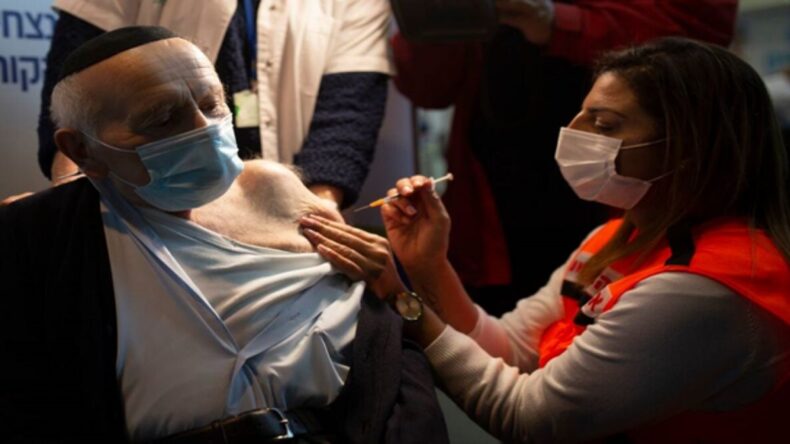The fourth wave of infections is rapidly approaching the levels of Israel’s worst days of the pandemic last winter.
The standard rate of confirmed new virus cases has doubled over the previous two weeks, making Israel a rising hot spot on the international charts.
Israel was the first country on the planet to fully vaccinate most of its citizens against the deadly COVID-19 virus.
Now it has one of the world’s highest daily infection rates — an average of almost 7,500 confirmed cases are being reported in a day, double what it was two weeks ago.
Today, in Israel, Almost one in every 150 people has been infected with the covid-19 virus.
Israel had fully vaccinated slightly over half its population by Mar. 25.
Infections waned, venues reopened to the vaccinated, and the prime minister told Israelis to go out and have fun. By June, all restrictions, including indoor masking, were abolished.
But Israel paid the price for the early rollout. Health officials and Pfizer said their data showed a dip in the vaccine’s protection around six months after receiving the second shot.
Earlier in June, the country had registered zero new COVID-19 cases for many days.
This success occurred just half a year after Israeli authorities announced the start of the national vaccination campaign, which eventually led to the nation reaching the top of the highest vaccination rates in the world.
As almost 60% of its population of 9.3 million had received two doses of the vaccine produced by American drug firm Pfizer and its German partner BioNTech, Israel slowly removed all restrictions proclaiming mask-free venues.
It started sending its citizens back to crowded parties, restaurants, cafes and many other crowded venues.
While Israeli authorities were imagining a bright future, the more contagious delta variant rapidly spread across the country to the point where the Middle East nation’s recent daily infections toll reached an all-time high since January.
The Health Ministry of Israel announced a record number of cases of COVID-19 on Thursday, with 11,187 new conditions in the past day.
The previous high came on Jan. 18, with 10,118 points. The country has recorded 7,090 deaths from coronavirus since the beginning of the covid-19 pandemic.
Amid the recent COVID-19 situation in the country, Israel, which often topped lists from Oxford University-based “Our World in Data” for most vaccinated nations, now is leading in another category as the nation with the world’s highest one-week rolling average of new daily infections per million people.
Israel is now closely watching because it was one of the first countries out of the gate with vaccinations in December 2020 and quickly achieved a degree of population coverage that was the envy of other nations— for a time.
The country of 9.3 million also has a robust public health infrastructure, and a population wholly enrolled in HMOs that track them closely, allowing it to produce high-quality, real-world data on how well vaccines are working.
The vaccine may have been less effective at preventing infection with the highly contagious delta variant, now the primary virus in Israel.
The majority of Israel’s older population had already received two doses of the Pfizer-BioNTech vaccine by the end of February.
By now, about 78 per cent of the population age 12 and older have got fully vaccinated.
After seeing infection levels dropping in the spring and determined to reboot the economy, Israel dumped its electronic pass system and at the same time eased travel bans and simultaneously lifted all other restrictions.
The last to go was the strict implementation of the indoor mask mandate on Jun. 15.
However, as summer approached, infections began to spiral out of control. School had started, families crowded local hotels, and up to 40,000 people a day were already flying abroad.
After many days of zero COVID-19 deaths in June, at least 230 Israelis have died this month.
After reviewing data on breakthrough infections in Israel, the U.S. announced a booster shot a campaign for anyone eight months after their second shot beginning in late September.
The U.K. has promised boosters soon, and Turkey is offering Pfizer shots to those immunized with the Sinovac vaccine to help citizens planning to travel since some countries will not recognize the Chinese vaccine. Studies suggest boosters might have broader value.
Researchers have shown that boosting induces a prompt surge in antibodies, which get utilized in the nose and throat as a crucial first line of defence against infection.
The Israeli government’s decision to start boosting those 50 and older got driven by preliminary Ministry of Health data indicating people over age 60 who have received the third dose were half as likely as their twice-vaccinated peers to get hospitalized in recent days, Mevorach says.













